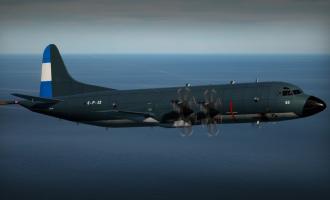The Greek-Turkish crisis and the possibility of war, US-Greece relations and the changing geopolitics of the wider region are commented on in an exclusive interview with PENTAPOSTAGMA by Ryan Gingeras*, a professor in the Department of National Security Affairs at the Naval Postgraduate School of the US Navy and expert on Turkey, Balkan and Middle East history.
Having analyzed why Erdogan might choose war with Greece, Professor Gingeras points out that it is not a hundred percent clear what Erdogan specifically wants, however he states that "all we know is that a military option may be something he’s contemplating".
Commenting on the illegal Turkish-Libyan energy agreement and the movements of the "Abdul Hamid Khan" drilling rig, the American expert believes that "it all seems, at present, somewhat of an aspirational policy rather than the result of a clear-cut strategy".
“Many in Ankara believe that becoming an energy exporter, as well as becoming more energy independent, is key for Turkey if it is to become a major power. What’s not clear is whether these aspirations can overcome the fact that Turkey’s relations with Egypt and Israel likely have to improve. So far, there’s no indication that Egypt or Israel will compromise on their relationship with both Greece and Cyprus for Turkey’s sake", he adds.
"Ankara’s success seems to remain linked to improving its regional position which is still relatively weak and isolated"
Commenting on US-Turkey relations, Mr. Gingeras observes that both sides continue to try to find ways to make the relationship work despite the large number of disagreements that exist between them, while warning that "after the midterm elections, it is possible a Republican-led Congress may feel differently about Turkey but it’s unclear so far".
Regarding the strengthening of ties with Greece in the diplomatic and military fields and possible military support in times of crisis or war, the American professor recalls that "neither Washington nor Brussels were especially prepared for the crisis in 1996 (let alone the war in 1974)". "Very few partners or allies tend to retain preset plans or expectations in the event their allies or partners fight one another", he adds.
Summing up, Mr. Gingeras, referring to the geopolitical changes resulting from the war in Ukraine and the role of Turkey and Russia in those changes, points out that "in the short term, the war in Ukraine has increased global attention upon the eastern Mediterranean, the Black Sea and the Aegean", however, "it is too early to say what the long-term impact of the war will be".
"Needless to say, next year is going to be a time of great consequence", he concludes.
The full interview:
- In a recent article and in the wake of the Turkish president's threats, you analyzed why Erdogan might choose war with Greece. How do you think Turkey will act and what will be the consequences of its actions? What is the correlation with the 2023 elections?
It is hard to say what Ankara intends to do since it’s still not a hundred percent clear what Erdogan specifically wants. His statements, while threatening, are ambiguous. There seems to be two, potentially three issues, that he has focused on specifically in the Aegean: militarization, American military support for Greece and potentially Greece’s actual sovereignty over the islands (I say potentially since it’s not clear what he means when he references islands that are “occupied.” Is he talking about “grey zone islands?” Is he referencing the idea that Greece’s supposed violations of its treaty obligations nullify its sovereignty over the islands? Or is it something else? It’s not clear).
As a result of this lack of clarity, it's not clear what solutions he sees or what will precisely satisfy him. All we know is that a military option may be something he’s contemplating. Certainly, the election is something on his mind when it comes to Greek-Turkish relations but there are other issues too, perhaps the most important of which is the Turkish Republic’s centennial anniversary next year. Both the election and centennial may have compelled him to think about issues in the Aegean with more urgency.
- What is your opinion on the developments in the energy sector? What are the implications of the illegal Turkey-Libya energy deal, where you think Turkey's Abdul Hamid Khan drilling rig will move and what will happen to the EastMed pipeline?
It’s one thing to sign agreements and declare a large EEZ. It’s another for Turkey to fully take advantage of these declarations. I’m not sure how Turkey plans to go about drilling for and extracting resources from disputed areas in a way that won’t prompt conflict or disruptions. It seems, at present, somewhat of an aspirational policy rather than the result of a clear-cut strategy.
For sure, many in Ankara believe that becoming an energy exporter, as well as becoming more energy independent, is key for Turkey if it is to become a major power. What’s not clear is whether these aspirations can overcome the fact that Turkey’s relations with Egypt and Israel likely have to improve. So far, there’s no indication that Egypt or Israel will compromise on their relationship with both Greece and Cyprus for Turkey’s sake.
Ankara’s success seems to remain linked to improving its regional position which is still relatively weak and isolated. At present, it seems more likely that the provocative drilling ventures in the eastern Mediterranean is more about posturing than necessarily building towards a coherent, attainable set of goals.
- Greece and the USA are on a continuous course of strengthening their relations on both the diplomatic and military level. How will Washington deal with a Greek-Turkish crisis or war? How will Greece's allied forces (NATO, EU, France) react? Will they support Greece militarily?
It’s very hard to say what the United States, France, NATO or the EU will do if the worst-case scenario unfolds between Greece and Turkey. As an employee of the United States Navy, this is very much my opinion, but I don’t get the sense that anyone has a set plan in mind if they are forced to deter or mitigate a conflict between Greece and Turkey. If history is any kind of guide, it’s clear that neither Washington nor Brussels were especially prepared for the crisis in 1996 (let alone the war in 1974). I’m maybe wrong but this should be expected. Afterall, very few partners or allies tend to retain preset plans or expectations in the event their allies or partners fight one another. This is a long-winded way of saying I’m not sure what will happen.
- At what stage are US-Turkey relations and how are they shaped by the crisis in the Mediterranean, the war in Ukraine and Ankara's rapprochement with Arab states?
Again this is just my opinion but I think both Ankara and Washington continue to “muddle through” their relationship with one another. I think both sides continue to try to find ways of making the relationship work despite the large number of disagreements that exist between them.
The war in Ukraine is a good example of this. I think both Washington and Ankara wish to see the conflict as a potential way to build some degree of good will despite quite stark differences of opinion and approach. One thing that I think helps anchor Washington’s approach towards Ankara is the fact that Turkey remains an important actor with respect to issues that are of vital importance to the United States, particularly European security and Middle Eastern stability.
One important issue in looking at the near future are the differing dynamics internally in DC and Ankara. Erdogan has far greater influence over the direction of Turkish foreign policy than President Biden does over US policy. Erdogan can change course any time he wants whenever it suits him. Biden specifically must include Congress in crafting US policy.
I’m sure Greek readers are familiar with influence of Senator Menendez with respect to both Greek and Turkish issues. After the midterm elections however, it is possible a Republican-led Congress may feel differently about Turkey but it’s unclear so far.
- Turning back in history, what are the lessons we draw for today's Greek-Turkish relations and the wider crisis around Turkey's borders, from Armenia to Iraq and Syria?
If you are asking about the relationship between history and contemporary affairs, I think it’s important to see history as a force that may influence Turkey’s behavior but it doesn’t determine it. We have seen Ankara’s approach towards Greece, Armenia and Syria evolve quite a lot over the last two decades. Events over the last twenty years seem to suggest that Ankara is not inherently inclined toward confrontation or revisionism.
Erdogan has made a choice in pursuing more aggressive policies because of a variety of factors (changing regional conditions, new domestic pressures, his changing ambitions, a growing defense industry, and so forth). Just because Greece, Armenia and Syria were sites of conflict in Turkey’s past, however, doesn’t mean they will remain Turkey’s adversaries in the future.
That said, I think the coming centennials marking the end of the Ottoman Empire, the Treaty of Lausanne and the establishment of the Republic of Turkey are important in terms of the context in which politics is discussed in Turkey. At the very least, it adds significance and urgency to the way major foreign policy issues are debated (particularly with respect to Greece). It also potentially adds to what I think is a general sense of frustration among Turks in general.
Consider the issues at stake today, the islands, Turkey’s borders and Greece’s sovereign rights, as well as the connection between Greece, Turkey and the policies and rivalries of the “Great Powers.” Each of these issues were as important 100 years ago as they are today. These continuities, as well as the fact that Turkey is far stronger today than it was a century ago, appears to make issues in the Aegean more frustrating.
For many Turks, it appears that thing have gone on far too long and that Turkey no possesses both strength and resources to finally settle issues with Greece. I think it’s this perception that may lead Turkey towards into a more direct confrontation with Greece. With country now turning 100 years old, many people may come to think that the time to deal definitively with these issue is now.
- How does the war in Ukraine affect the geopolitics of the East Mediterranean and the Middle East regions? What is the role of Turkey and Russia in those changes?
I think it’s too early to say what the long-term impact of the war will be. In the short term, the war in Ukraine has increased global attention upon the eastern Mediterranean, Black Sea and Aegean. I think the war, coupled with COVID, has also highlighted the economic and political linkages related to issues many people took for granted, such as energy, grain and supply chain issues. I would say the same uncertainty can be said of Russia and Turkey as well.
Putin arguably has gambled everything, including his regime, on winning in Ukraine. Who know what happens if he wins or loses.
Turkey, meanwhile, is approaching its most consequential election in its history. If Erdogan loses, it likely will lead to a lot of internal upheaval and fallout over the impact and legacies of his reign. If he wins, legitimately or otherwise, its hard to say what the opposition will do to compensate. It seems, at the very least, that social and political cleavages the country may grow wider still. This growing division prove, on its own, combustible.
Needless to say, next year is going to be a time of great consequence.
*Ryan Gingeras is a professor in the Department of National Security Affairs at the Naval Postgraduate School and is an expert on Turkish, Balkan and Middle East history. He is the author of four books, including most recently, Fall of the Sultanate: The Great War and the End of the Ottoman Empire 1908–1922. His Sorrowful Shores: Violence, Ethnicity, and the End of the Ottoman Empire received short list distinctions for the Rothschild Book Prize in Nationalism and Ethnic Studies and the British-Kuwait Friendship Society Book Prize. He has published on a wide variety of topics related to history and politics in such journals as Foreign Affairs, International Journal of Middle East Studies, Middle East Journal, Iranian Studies, Diplomatic History, Past & Present, and Journal of Contemporary European History. As a faculty member of the Naval Postgraduate School, he has participated and contributed to research and executive education projects on the behalf of the Department of State, Department of Energy and the Department of Defense.















